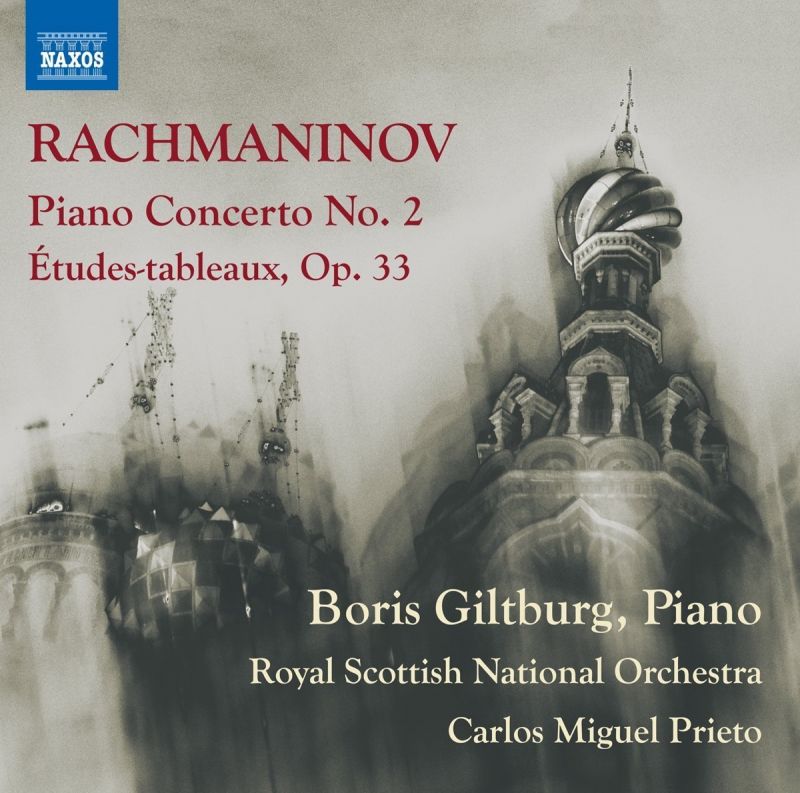RACHMANINOV Piano Concerto No 2. Études-tableaux Op 33
View record and artist detailsRecord and Artist Details
Composer or Director: Sergey Rachmaninov, Fritz Kreisler, Franz Behr
Genre:
Orchestral
Label: Naxos
Magazine Review Date: 10/2017
Media Format: CD or Download
Media Runtime: 66
Mastering:
DDD
Catalogue Number: 8 573629

Tracks:
| Composition | Artist Credit |
|---|---|
| Concerto for Piano and Orchestra No. 2 |
Sergey Rachmaninov, Composer
Boris Giltburg, Piano Carlos Miguel Prieto, Conductor Royal Scottish National Orchestra Sergey Rachmaninov, Composer |
| (9) Etudes-tableaux |
Sergey Rachmaninov, Composer
Boris Giltburg, Piano Sergey Rachmaninov, Composer |
| Liebesleid |
Fritz Kreisler, Composer
Boris Giltburg, Piano Fritz Kreisler, Composer |
| Lachtäubchen, ‘Polka de WR’ |
Franz Behr, Composer
Boris Giltburg, Piano Franz Behr, Composer |
Author: Patrick Rucker
As one might have anticipated from Giltburg’s recent recording of the Op 39 Études-tableaux (6/16), Op 33 is an equally choice offering. He brings the same aptness to his realisations of Rachmaninov’s often extreme emotional evocations, be they the robust swagger in the F minor Étude (No 1), interrupted as though confidence has caved in to debilitating doubt; the contorted ambivalence of the C minor Étude (No 3), opening up to the endless vistas of C major with a palpable sense of relief; or the true tempo moderato of (No 4), where the carefully delineated voice leading conjures the air of an ancient folk tale. Rachmaninov’s obsession with bells is always in evidence in these unforced, beautifully pianistic readings. The transcription of Kreisler’s Liebesleid and the Polka de WR round out the programme with their heady perfume of overripe nostalgia.
One imagines that Giltburg must be thoroughly conversant with Rachmaninov’s recorded legacy but his readings are far from simulacra. Rather than imitating Rachmaninov, Giltburg seems to imbibe the composer’s spirit. Doing so, he provides the best testimony I know of that Rachmaninov’s 116-year-old signature concerto still has a long, healthy life ahead of it.
Discover the world's largest classical music catalogue with Presto Music.

Gramophone Digital Club
- Digital Edition
- Digital Archive
- Reviews Database
- Full website access
From £8.75 / month
Subscribe
Gramophone Full Club
- Print Edition
- Digital Edition
- Digital Archive
- Reviews Database
- Full website access
From £11.00 / month
Subscribe
If you are a library, university or other organisation that would be interested in an institutional subscription to Gramophone please click here for further information.




